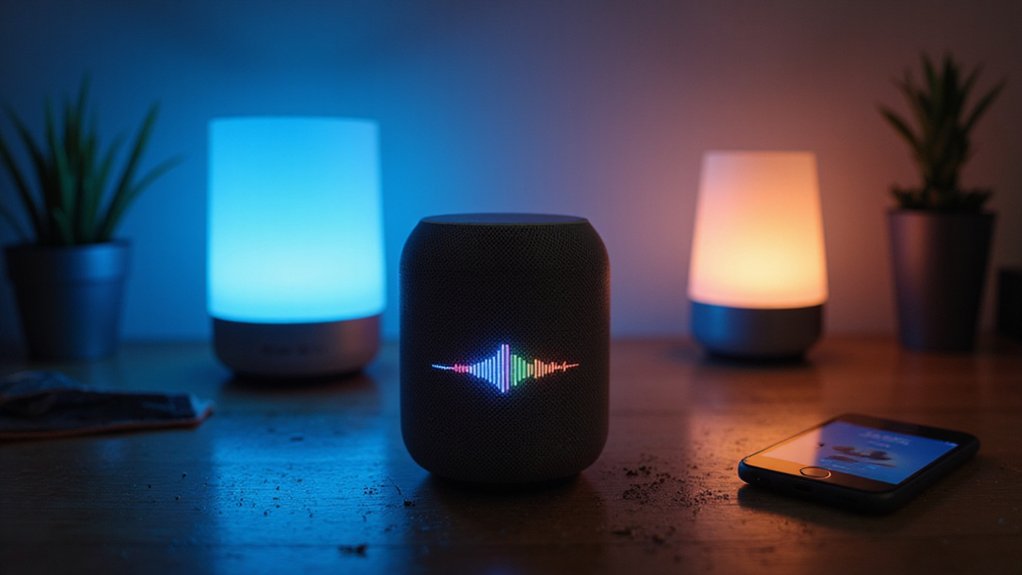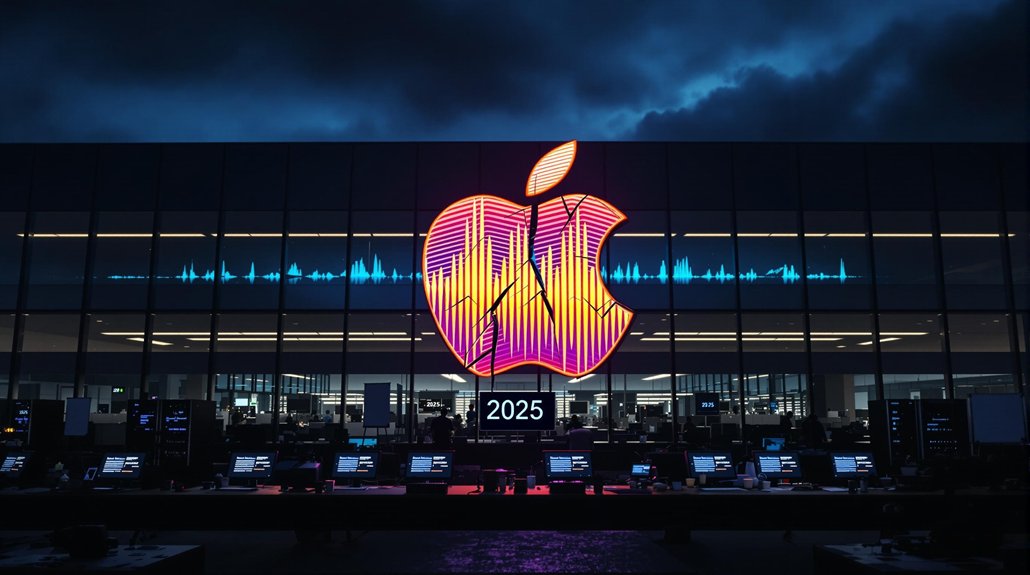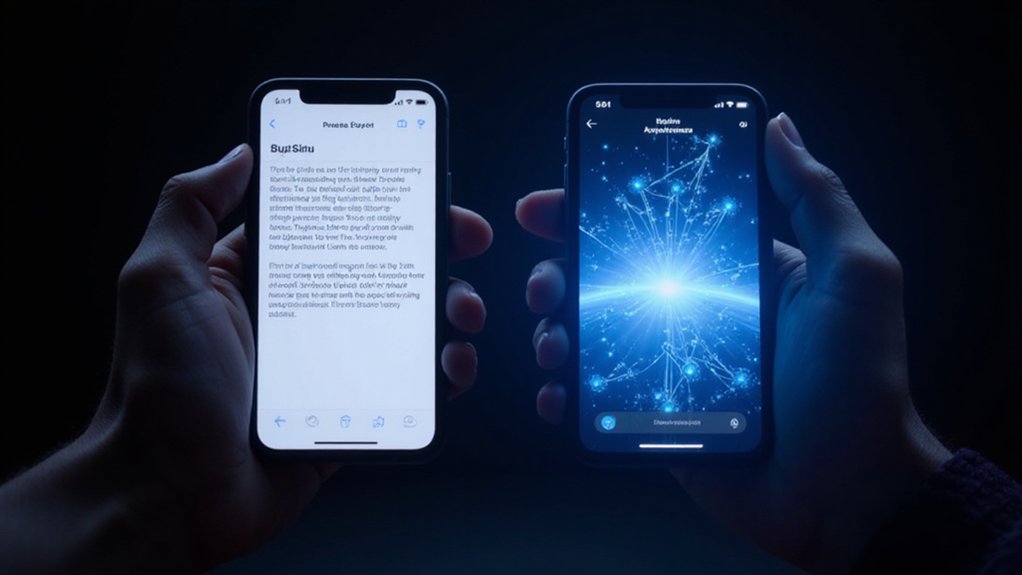While Google Assistant and Alexa duke it out for voice assistant supremacy, Apple’s Siri sits in third place like the kid picked last for dodgeball. With 86.5 million U.S. users, Siri commands just 29% of the virtual assistant market. Google Assistant leads at 39%, followed by Amazon’s Alexa at 36%. Even Microsoft’s Cortana and Samsung’s Bixby are nipping at Siri’s heels.
The numbers tell a brutal story. Voice assistant users in America will hit 153.5 million this year, with worldwide usage expected to reach 8.4 billion by 2024. The smart speaker market alone is exploding from $9.60 billion to a projected $57.48 billion by 2033. Everyone wants a piece of this pie. Except maybe Apple, whose market share in related segments sits at a measly 1.91%. Apple’s dominance in the overall market with 86.47% share makes their voice assistant struggles even more perplexing.
The voice assistant market is exploding while Apple watches from the sidelines with just 1.91% market share.
Voice search has become huge. Over a billion searches happen monthly across all platforms. People love it – 27% use voice on mobile, and 76% use it to find local businesses. Most smartphone owners actually prefer talking to typing. Makes sense. Who wants to fumble with tiny keyboards when you can just ask?
The real twist? Voice assistants answer 93.7% of queries accurately, and results load in just 4.6 seconds. But here’s the thing – nobody’s sharing Siri’s specific performance numbers. That’s never a good sign. Meanwhile, Google and Amazon keep pushing boundaries with smart home integration, the major growth driver in this space.
North America dominates with 42.5% of the intelligent virtual assistant market, yet Apple can’t capitalize in its own backyard. While competitors race ahead with AI advancements and expanding capabilities, Siri feels stuck in 2011. The rapid growth of connected home appliances and consumer demand for hands-free convenience should be Apple’s playground. Instead, they’re watching from the sidelines.
Twenty-one percent of people don’t use any virtual assistant. That’s Siri’s opportunity slipping away. As artificial intelligence transforms these assistants from novelties to necessities, Apple’s once-revolutionary feature looks increasingly like yesterday’s news. The silence is deafening. Privacy concerns plague the industry, with 41% fearing their conversations are being recorded, yet Apple’s privacy-first reputation should be their ace in the hole. While 70% of businesses are already seeing returns on investment from their generative AI initiatives, Apple’s sluggish approach to enhancing Siri suggests they’re missing the economic benefits their competitors are reaping.
References
- https://csimarket.com/stocks/competitionSEG2.php?code=SIRI
- https://www.yaguara.co/voice-search-statistics/
- https://scoop.market.us/intelligent-virtual-assistant-statistics/
- https://www.trefis.com/data/companies/SIRI/no-login-required/dmWOmaNH/Sirius-XM-SIRI-Earnings-Preview-SIRI-Stock-Likely-To-Trade-Higher-Due-To-Strong-FY-2025Q2-Results-With-Revenues-And-Earnings-Beating-Expectations
- https://www.globenewswire.com/news-release/2025/05/15/3082416/28124/en/Smart-Speaker-Market-Analysis-Report-2025-2033-Multi-Billion-Dollar-Growth-Fueled-by-Growing-Use-of-Voice-Assistants-Smart-Home-Integration-and-AI-Advancements.html









